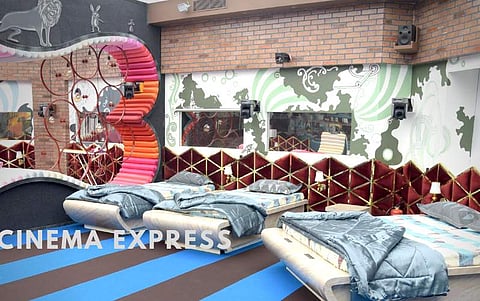

Bigg Boss Tamil Season 3 went live on Sunday and the person responsible for bringing the programme to Tamil audiences is Abhishek Rege, CEO of Endemol Shine India. It was not easy though, he says. "There was a long wait; we had to convince people that Bigg Boss isn't a bad show. It is a family entertainment show." The biggest hurdle to the company when it came to putting out the show, which has been successfully running in Hindi for more than a decade, was the orthodoxy of regional markets. "India is blessed with so many languages and aside from Hindi, the top monetisable markets are the four in South (Tamil, Telugu, Malayalam and Kannada), Bengali and Marathi. But people have always chosen to consume similar content across the board regardless of language and we believed that the aura of watching something unfold in your own mother tongue lends an aura of closeness."
He thanks Vijay TV for making this happen. "They gave a huge push overall, especially with the host. Kamal Haasan was the first name dropped in the discussions and when you put up a name like that, your only onus is to close the deal out." He sees Kamal Haasan as one of the three pillars of the show. "Bigg Boss is built on three Ts - Talent, Talent, Talent. The first is the host, the second is the in-show talent and the third are the ones who work behind the scenes. Entry barriers were relaxed with Kamal sir's presence, so we had to focus very very closely on the second T. But even there, someone like Oviyaa was a great success in our very first season and that put us on the map."
On the selection of talent, he says the team has a stringent background check before taking people up. "In fact, we do two psych evaluations. After we shortlist them to 20-25 contestants, a doctors who has been with us the longest time, sits and has a chat with every single one of them. We look for signs of withdrawal, potential to turn violent etc and reject such people immediately. Once this process is done, before the talent takes to the stage, another round of evaluations happen where we ask if they are ready to take up this task."
Endemol works on a season-to-season basis while its channel partner keeps tabs on local trends. "The overall brief to the team is to keep it simple. You put them in a house, give them things to do and you are only observe their behaviour. At no point do you go out and tell them this is how you act. You have to rely on these characters and the tasks are designed in such a way that you think of their mindset and keep mixing and matching them in either the same team or the opposite team to get the best results."
He looks at the entire Bigg Boss as a news-based show, albeit in a confined environment. "Let us say there are five stories today, and if I can follow three, I will have to decide what to follow. Now we don't know when a story can or will end. It could end because the talking is done, or one of the two contestants are out. Then the stories we left out are picked out, a voiceover is laid over, and we start afresh with that story. You just run with what is on hand. Contestants who give us the most ratings are the ones we want to keep the longest but at the end of the day, rules are rules, and if you break them, we lose a story."
On complaints from contestants that only their bad side is shown, Rege disagrees. "We do not edit to project a persona. There are 70 cameras out there but not all of them record all the time. They all come together as four streams of 24 hours of recorded material that total to 96 hours of footage. With this, I am making a show of one and a half hours that tells more than one story. The audience has paid money to watch something happen. It makes no sense for me to show you as a bystander if that is all you have been. You could talk about all the important things in the world but does it make sense to the advancement of the story? If the answer is no, it doesn't make the cut."
He points out the third T for why Bigg Boss has remained so attractive. "All that decision making I told you rests with two creative directors - one from Endemol and another from the channel. If they say no, it is no. No one, not even I, can change this. To aid them in this process, we have four-five story editors who watch four hours of footage at one go, take a break for four hours and then come back. It is an intense job. Then there is one daily producer who is responsible for the day's show. He works for 36 hours (24 hours cut to cut plus 12 hours before the show goes on air) straight. They then get a break for two days. It is akin to a pilot's schedule."
And yet, the show has had controversies every year. "At no point in time does it make sense for makers or broadcasters to do things that are not in line with family entertainment. Every broadcaster has their own standards and practices team that censors content before we go on air. That is why we are in the mass market and our viewership is so high. Our biggest fear is we may show things that a family audience is uncomfortable with, and cause them to change the channel. Whether someone goes to court or not, we will do what we have done always: Provide quality family entertainment."